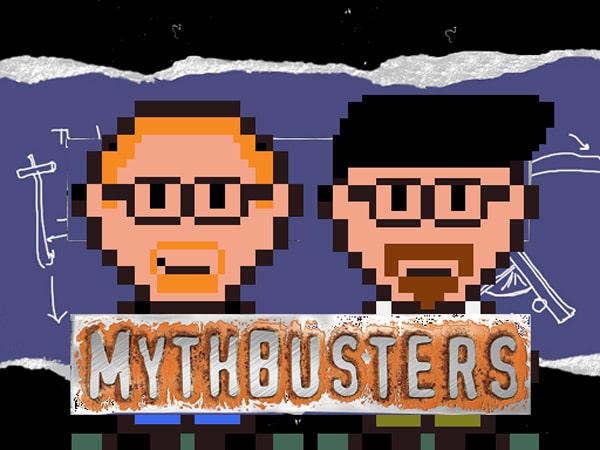Finding a good job has become a lot more difficult with so many qualified candidates available due to layoffs. That’s why it’s important to find ways to stand out from the applicant crowd and make a great impression in the job interview.
The problem is that there is so much (contradictory) interview advice floating around that it’s easy to get confused. Here are five myths commonly associated with job interviews, each exposed individually.
Myth #1: Memorize your answers to interview questions
Yes, entering an interview without being prepared is a recipe for disaster, but don’t get too hung up on memorizing responses. First of all, memorized responses usually sound stiff and rehearsed. Don’t let a script stand in the way of building rapport and letting your personality shine through.
It’s also important to realize that you can’t prepare for every possible question. Most interviewers will try to keep you on your toes with challenging queries.
Do your research and practice your talking points (descriptions of your strongest qualifications for this particular gig), until you feel comfortable discussing the job, the company, and your background and accomplishments in a natural way. If you practice enough, you’ll be ready to address any question that the interviewer poses and steer the conversation back to your key strengths.
Here are additional tips on how to prepare for an interview.
Myth #2: Give them a number when asked about the salary
Most of us have been trained not to discuss salary and money in polite society. That may be why salary talk is so awkward for many interviewees. Luckily, a candidate doesn’t have to (and shouldn’t) answer with an exact dollar amount when asked about their salary requirements.
A good response to a question about salary expectations is to state that you’re willing to consider a competitive offer and politely ask how much the company is prepared to pay for the position you are applying for. Let the other guy be the first to name a number.
Another option is to diplomatically put off the salary discussion. Express your enthusiasm for the position and your willingness to negotiate after an offer is extended.
As you prepare for your interview, watch this free video on how to negotiate your salary.
Myth #3: Show weakness, get shown the door
We all have flaws. Strutting into an interview like a narcissist is a sure way to sabotage your chances. Most interviewers will ask you to identify a flaw or weakness and if you struggle to name a single thing wrong with you, you’ll come across as deluded, arrogant, and/or unable to accept criticism with any grace. That’s why it’s important to develop and practice an honest but positively-framed response to the “greatest weakness” question.
Pick a flaw that won’t be seen as a major dealbreaker for the position at hand (saying you’re disorganized in an interview for a project manager job, for example, is unwise). You should also avoid cliched responses that the interviewer has heard a million times. For example: “I care too much” or “I work too hard.” This approach can flag you as unoriginal and dishonest.
Describe a flaw, coupled with an explanation of how you’re working to address it, and then move on. This is one of the toughest questions in any interview, so take the time to practice and get feedback on how your answer comes across from a friend or coach.
Myth #4: If you show your strengths, you’re getting the job
Yes, the hiring manager wants to know all about you, but their main interest is in learning how your skills and background can benefit the company. It is common for job seekers to ramble on and on in an interview, listing every positive quality they possess. Every interviewee is a “people person,” “team player,” and “hard worker.”
Instead of inventorying every accomplishment since your sixth-grade science fair win, focus on the key qualities that are MOST relevant for the job and back up your claims with stories and examples.
This may sound like common sense, but it’s surprising how many candidates neglect to present their strengths effectively in job interviews.
Before each interview, take time to research the job requirements and focus on crafting speaking points to support the three or four strengths that make you a good fit for the job.
Myth #5: The employer is in total control
Although the employer decides who to hire, you may have more influence on the final decision than you realize. Instead of waiting around in limbo for a call, reach out to the recruiter or hiring manager to reiterate your interest in joining the team and ask if you can provide additional information.
This type of follow-up is not standard (fear of rejection holds many back) and that’s precisely why you should do it. If you communicate in a polite and businesslike manner, it will show initiative and help you stand out from a crowd of similarly-qualified candidates.
